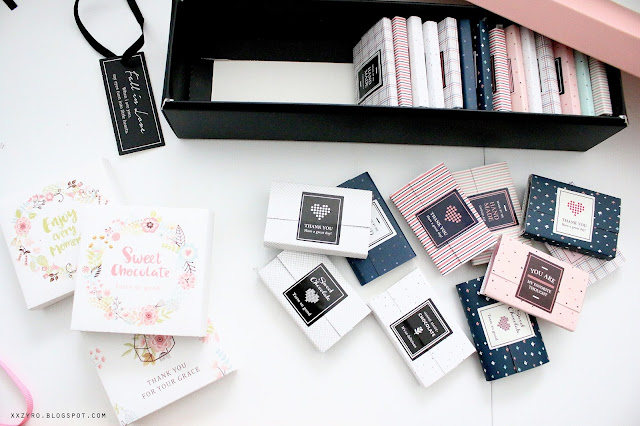Do you know what your skin type is?
Knowing your skin type is absolutely necessary in order to make a right decision about a proper skin care or treatment, which is suitable for your particular skin needs. The initial quality, or type, of your skin is genetically determined – meaning that you are born with it.
However, the health and beauty of your skin later in life largely depends on what you eat and how you take care of yourself. A popular Russian saying states that, after the age of 30, a woman looks the way she deserve. To always look great, the first step is to determine your skin type so that you can match it with the best recommended methods to improve your look and slow the aging process.
How To Determine Your Skin Type?
Some of you who are still new to the whole skincare things probably wondering how to determine your own skin type. To determine your skin type, it's easy. Just conduct a simple test with a clean facial tissue (or paper) to wipe your face in the morning, when you have just woken up!
or
wash your face, pat it dry, then take a few pieces of rice paper or lens-cleaning tissue paper and press on different spots on your face. If your skin is oily, the paper will stick, pick up oily spots and become translucent. If the paper doesn't stick or pick up any oily spots, your skin is likely dry. If it sticks in your t-zone (forehead, nose and chin) then you have combination (or normal) skin. Most women actually have combination skin.
Normal Skin
If you skin belongs to a normal type, the tissue will not reveal any traces of oil. Your skin should feel vibrant, elastic, and supple. Normal skin is the least problematic type.
It looks clean and smooth and has a good circulation and healthy complexion. Even with a minimum care, it will look good well into your advanced age.
Dry Skin
If your skin is dry, the paper will be clean, too, but your face skin will feel flaky, dry, and tight after you have wiped it.
Dry skin is caused by under or inactive oil glands that do not produce enough sebum to keep the skin naturally lubricated. It usually has a dull appearance, feels dry and itchy and is sometimes sensitive.
Dry skin can easily develop a sallow tone, wrinkles, and fine pores, and it is very prone to aging and irritating. It might still look great on a young person, but, to keep it healthy, you should apply thorough care and use regular skin or beauty treatment with natural masks, moisturizers and must be hydrated regularly from the inside (with fresh water) and outside with (mists), as well as moisturized with rich hydrating creams or lotions.
Oily Skin
If you have oily skin, the paper will have spots of facial oil on it, corresponding to the areas of your cheeks, nose, and forehead. Oily skin is problematic – it usually looks greasy, thick, coarse, and shiny, has enlarged pores and clogged pores, and tends to break into acne (a condition resulting from sebum trapped inside the skin and causing pus-filled lesions known as comedones.) .
Oily skin is caused by glands that produce too much sebum.
A good thing, though, is that oily skin is not prone much to aging and wrinkling. Careful cleaning, minimizing of carbohydrate consumption, and avoiding rich creams can be helpful in improving the quality of oily skin.
Combination Skin
If you skin is combination, like that of most women, the tissue will have traces of oil coming from your nose and forehead, but will be clean in the areas that touched your cheeks.
Combination skin has patches of both dry and oily skin, and it requires different types of care in relation to particular facial areas. The combination of skin is frequently characterized by an oily “T-zone” area, which covers the forehead, nose and chin. While the skin around the cheeks, eyes and mouth is normal or dry.
Dry zones, which are usually located on the cheeks and around the eyes, should be treated with rich creams and moisturizers, while oily areas, usually on the forehead and nose, will benefit from frequent and thorough cleaning.
Sensitive Skin
Sensitive skin is usually very dry, tends to feel tight, and becomes inflamed and irritated easily. Typically, sensitive skin develops reddish and scaly areas, can be itchy and tingly, and is prone to breaking into spots. It is the most problematic and fragile type of skin, which needs a very special type of care. To get the right body products for this skin type too requires great research.
or
Sensitive skin can be dry, normal, or oily and is characterized by delicacy which is why we feel it is more of a skin condition than a skin type. It frequently reacts adversely to environmental conditions and often requires special treatment in order to remain in good condition. This skin type is prone to react adversely to cosmetics containing alcohol, synthetically manufactured oil type ingredients, fragrance oils, and artificial colors. Sensitive skin benefits greatly from natural, gentle, skin care products and treatments, including light steaming and some essential oils.
cr :
- http://beauty.allwomenstalk.com/simple-but-unbelievably-effective-homemade-acne-cleansers/
- http://www.herballuxuries.com/face-skin-types.html





